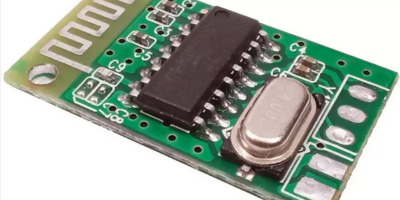In a world that thrives on connectivity, wireless communication has become more than just a convenience—it’s a necessity. One of the most vital technologies driving this seamless interaction is the Bluetooth module. Whether you’re listening to music on your wireless earbuds, transferring files between devices, or controlling your smart home appliances, chances are a Bluetooth module is working silently behind the scenes to make it all possible.
What is a Bluetooth Module?
A Bluetooth module is a small hardware component designed to provide Bluetooth connectivity between devices. It acts as a bridge between the microcontroller or processor and the Bluetooth network. These modules can be embedded in a wide variety of electronics, including IoT devices, smartphones, laptops, wearables, and even industrial machines.
What makes Bluetooth modules particularly attractive is their versatility and ease of integration. Most modules come with standard serial communication protocols like UART, SPI, or I2C, making them compatible with a wide array of microcontrollers. In simple terms, they allow devices to communicate wirelessly over short distances using radio waves.
Types of Bluetooth Modules
Bluetooth modules can be broadly classified into two categories: Classic Bluetooth and Bluetooth Low Energy (BLE).
- Classic Bluetooth is suitable for continuous data streaming and is commonly used in audio devices, such as speakers and headphones.
- Bluetooth Low Energy (BLE) is optimized for low power consumption and is ideal for devices like fitness trackers, medical monitors, and smart home sensors.
Popular modules include the HC-05 and HC-06 for classic Bluetooth and the HM-10 for BLE. Developers choose between these based on their project’s power requirements and data transmission needs.
Key Benefits of Using Bluetooth Modules
- Wireless Freedom: Eliminating the need for wires makes devices more portable and user-friendly.
- Energy Efficiency: Especially in BLE modules, power consumption is kept to a minimum, which is crucial for battery-powered devices.
- Secure Communication: Modern Bluetooth modules come with built-in encryption and authentication features to ensure safe data transmission.
- Cost-Effective: With widespread adoption and mass production, Bluetooth modules are relatively inexpensive and accessible for both hobbyists and professionals.
- Easy Integration: Most modules are plug-and-play and come with extensive libraries and support for popular platforms like Arduino, Raspberry Pi, and ESP32.
Applications Across Industries
The beauty of Bluetooth technology lies in its adaptability. In consumer electronics, Bluetooth modules connect everything from game controllers to wireless keyboards. In healthcare, they enable real-time data collection from wearable health monitors. In the automotive sector, they power hands-free systems, infotainment units, and even vehicle diagnostics.
One rapidly growing sector is home automation. From smart thermostats to intelligent lighting systems, Bluetooth communication module integration is making everyday life more efficient and intuitive. It allows devices to be remotely accessed and controlled via smartphones, eliminating the need for complex wiring or specialized hubs.
Tips for Choosing the Right Bluetooth Module
Choosing the right Bluetooth module depends on your specific use case. Here are a few tips:
- Range: Consider how far apart your devices will be. Some modules support extended range (up to 100 meters), while others are limited to shorter distances.
- Power Consumption: For battery-operated projects, BLE is usually the preferred choice due to its minimal power requirements.
- Data Rate: Applications like audio streaming require higher data rates, so make sure your module can handle it.
- Compatibility: Ensure the module supports the necessary interface and is compatible with your development platform.
Final Thoughts
The Bluetooth module has become an essential building block for modern wireless applications. Its compact size, low cost, and efficient performance make it an invaluable asset for developers and businesses alike. Whether you’re building a DIY gadget or designing a full-scale commercial product, integrating a Bluetooth module opens up a world of possibilities—transforming everyday objects into smart, connected devices.

